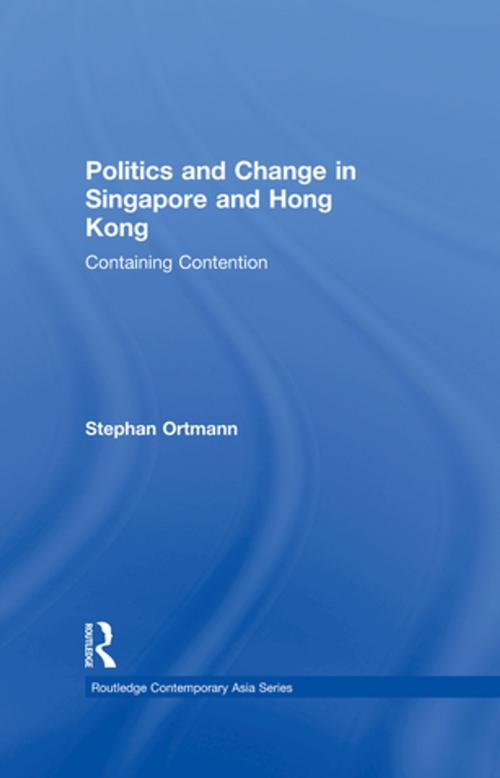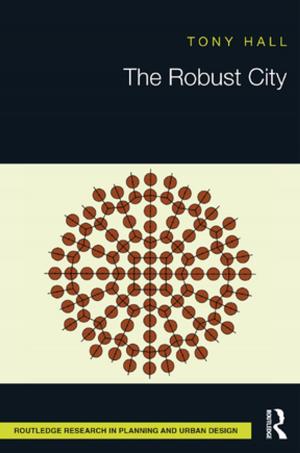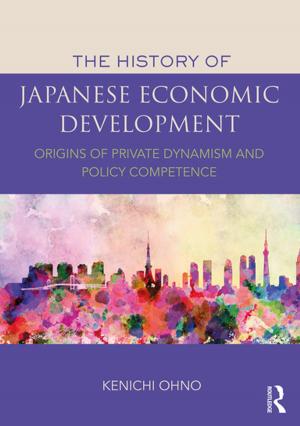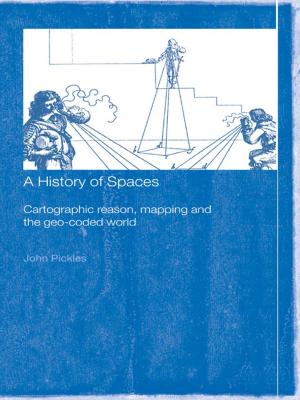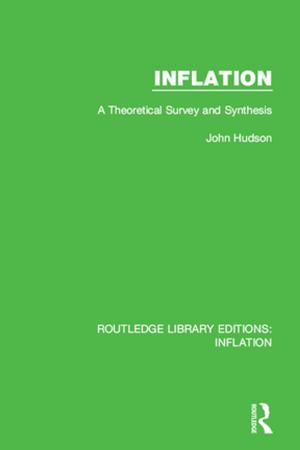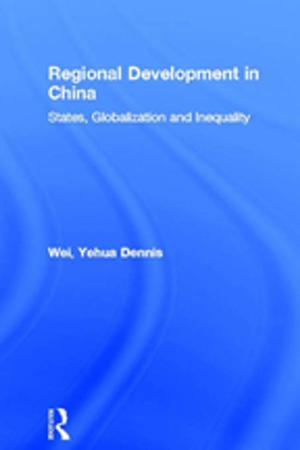Politics and Change in Singapore and Hong Kong
Containing Contention
Nonfiction, Social & Cultural Studies, Social Science, Cultural Studies, Ethnic Studies, Political Science| Author: | Stephan Ortmann | ISBN: | 9781135244668 |
| Publisher: | Taylor and Francis | Publication: | December 4, 2009 |
| Imprint: | Routledge | Language: | English |
| Author: | Stephan Ortmann |
| ISBN: | 9781135244668 |
| Publisher: | Taylor and Francis |
| Publication: | December 4, 2009 |
| Imprint: | Routledge |
| Language: | English |
In democratization theory, Singapore continues to be a remarkable country for its extremely low level of contentious politics despite rapid economic development. In contrast, many different groups in Hong Kong have taken their demands to the streets since the 1970s. Even though there is an obvious difference in the willingness of the population to actively challenge the regime, the political developments of the two city-states show a similar pattern of political mobilization and government reaction.
This book examines the changing pattern of contentious politics in the democratization process of these Asian city-states. It explores the causal connections between popular contention and democratization, using a multi-disciplinary approach with theoretical insights from the political sciences, sociology and psychology. The political process model is applied to provide further understanding of the patterns of interaction between contenders, opposition groups or social movements and the ruling elite. The book argues that differences in the strategies applied by the ruling elite explain why members of the opposition were empowered or obstructed in challenging the government.
In democratization theory, Singapore continues to be a remarkable country for its extremely low level of contentious politics despite rapid economic development. In contrast, many different groups in Hong Kong have taken their demands to the streets since the 1970s. Even though there is an obvious difference in the willingness of the population to actively challenge the regime, the political developments of the two city-states show a similar pattern of political mobilization and government reaction.
This book examines the changing pattern of contentious politics in the democratization process of these Asian city-states. It explores the causal connections between popular contention and democratization, using a multi-disciplinary approach with theoretical insights from the political sciences, sociology and psychology. The political process model is applied to provide further understanding of the patterns of interaction between contenders, opposition groups or social movements and the ruling elite. The book argues that differences in the strategies applied by the ruling elite explain why members of the opposition were empowered or obstructed in challenging the government.
